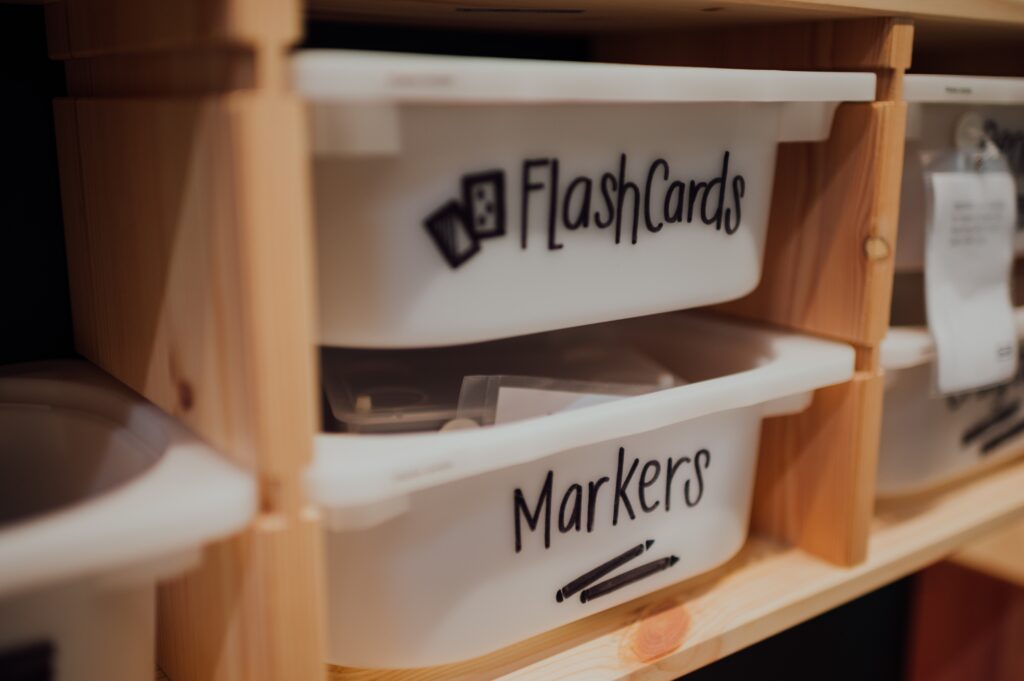When was the last time you had a good clear-out? When you spent some time going through drawers and cupboards and throwing away things you no longer need?
Chances are during lockdown you may have taken this opportunity to make a start on getting rid of things you don’t need or haven’t used for a while.
There’s lots of evidence to show that it’s good for your mental health to have a clean and tidy environment to live and work in. The saying “tidy house, tidy mind” springs to mind.
Having lots of clutter around you can cause you to feel stressed or anxious. A physical declutter of your home allows you to create more physical space around you. Decluttering your mind frees up mental and emotional space allowing you to think clearer and react with more clarity.
Ten Reasons to Declutter
If you need convincing that decluttering is a good thing to do, here are my top ten reasons to declutter:
✅ Everything looks clean and tidy
✅ You will be able to find things easier
✅ More space is created
✅ It reduces feelings of anxiety
✅ It can reduce family tension
✅ You may find some lost treasures
✅ Decluttering creates a calmer atmosphere
✅ You’ll have a sense of satisfaction when it’s done
✅ You may be able to earn from items that you can sell
✅ You get the opportunity to recycle and repurpose things you no longer need
How to get started
It all sounds pretty simple, right? And the reasons to declutter make complete sense too. However, if thoughts of where to start fill you with despair and overwhelm you, I’m here to help you.
First, start by setting regular times throughout the year when you will do some decluttering and get rid of things you don’t need, or you haven’t used for a while. This will help you to get into a routine and you’re less likely to become overwhelmed and not start at all. After a while decluttering will become second nature.
You can tie this in with the four seasons, your annual holidays, birthdays etc. For instance, declutter your Christmas decorations before you put them away. Why not declutter your summer wardrobe when you get back from your main holiday? Have a clear-out on the first Sunday in March as your spring-cleaning activity. If you’re into checklists, using one when decluttering is a good way to keep you on track.
Also, get into the habit of putting things away straight after using them. Having the mindset that there’s a place for everything and everything in its place will help you to put things away and will also help you find things easier. No more hunting for your car keys when you need to leave the house.
We can take in a lot of mental clutter through what we hear and see from those around us. Being aware of the energy that you surround yourself with will help you to create a more positive mindset and help to reduce negative mental clutter. Read about creating a positive mindset here.
Seven ways to declutter your life
Physical declutter
1. If you’re new to this, take it slow and start with a small space. Your sock drawer, a cutlery drawer, or even a purse, or wallet. There are always things you no longer use in these places. Old receipts, odd socks, broken utensils. Once you feel confident with one small area, add another small area then another.
2. Take a look around your home and decide which area could do with a tidy and declutter. As I said before, if you can tie the decluttering in with a time of the year or an event, you’re less likely to feel overwhelmed.
3. If you have a large area to do (a room that hasn’t been done for some time), divide it up into smaller areas and set yourself a time to do each area. That way you will be able to see the progress that you’re making.
4. Place items into one of four categories; keep, throw away, rehome, or sell. You’ll feel a sense of satisfaction when you sell something you haven’t used and have no intention of ever using again.
Mental declutter
5. Write things down. This is a fantastic way of sorting and clearing out your mental clutter. It could be anything from a shopping list, what’s on your mind right now and how that is affecting your mood, to what the chapters in your next novel will be. Different styles of journaling can be used to help you with this.
6. Declutter your social media. If you’ve joined lots of groups and signed up to too many mailing lists that you no longer need, cancel and unsubscribe from them. By decluttering your email inbox, you will be able to quickly see all your important emails easier and not feel overwhelmed when you see a full inbox to deal with.
7. It’s good to talk. Verbalising your thoughts is a great decluttering tool for your mind and shouldn’t be underestimated. Whether your thoughts are keeping you awake at night or you just want clarity on the thoughts that are going around and around in your head, talking to someone will help. You can talk things through with a trusted, supportive friend or a therapist. Just hearing your own voice saying what’s causing your sleepless nights can be the best way of releasing mental clutter.
Getting started is the hardest part but once you’ve got into a routine, you’ll wonder why you hadn’t done it more often before. Try one of these techniques and let me know how you get on.
Over the past few years, many of the people who I’ve worked with have shared with me their thoughts and feelings and I’ve helped them get to the root cause of what’s keeping them awake at night. Since lockdown I’ve been providing this service Calm and Clarity Hour.
These calls provide you with time to unravel your tangled thoughts and introduce calm and clarity. Your tailored sessions will be designed to help you get clarity on what support you need for your situation and then I will introduce you to skills and techniques that you can use to better manage your mindset and emotions when dealing with situations that are causing you to feel overwhelmed.
By the end of your 60-minute Zoom call, you will have an action plan, some tools, and techniques to move you forward with confidence.
Read more about these sessions here
Calm and Clarity Hour
You may want to take a look at my book, Self-care for Busy Women. It’s full of hints, tips, checklists and trackers and will show you how spending just a few minutes each day focusing on your mental, emotional and physical health can have a big influence on your mindset and well-being. You’ll also be able to create your own 30-day self-care plan that fits seamlessly into your busy lifestyle.
About Sharon

Sharon lives with her partner Geoff in Warwickshire and they have two adult children. She worked for over 25 years in an office environment, gaining qualifications to degree level in finance, business and management. While there Sharon witnessed and experienced many stressful situations and suffered illnesses that were stress-related.
Sharon was advised to make some changes to her lifestyle which included trying complementary therapies. After experiencing the benefits of complementary treatments, Sharon decided to retrain and to share her knowledge and experiences to help others recognise and manage their own physical and emotional stress and anxiety levels.
She has been working as a complementary therapist for over 15 years now and loves helping people manage and reduce their stress levels to feel uplifted, focused, positive and empowered about their lives.




